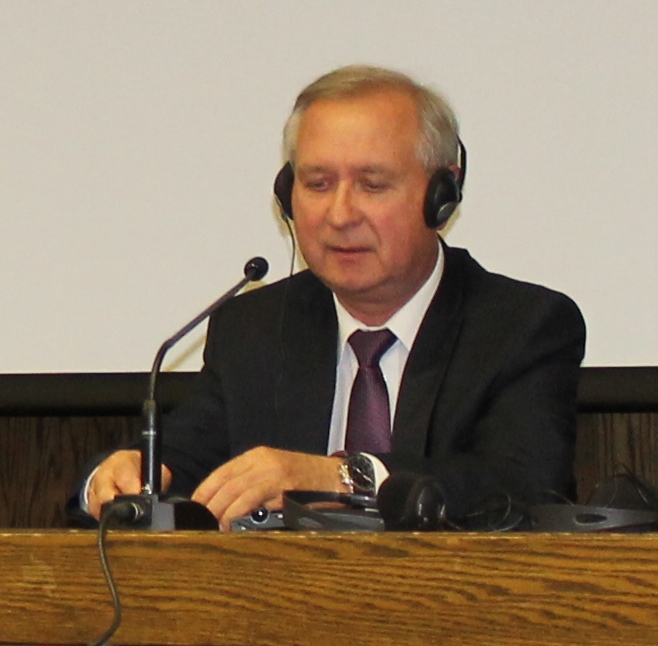





Joseph Hepworth reporting
Moderator: Thomas B. Griffith, Circuit Judge, United States Court of Appeals for the D.C. Circuit
Volodymyr Zagoldnyi, Judge, Supreme Court of Ukraine
Judge Zagoldnyi began his presentation by observing that conflict between religions is quite natural in the process of globalization. In Ukraine, Article 35 of the Constitution protects religious freedom. Each person has freedom of thought, including the right to change religion. The state interferes with religion only as necessary to protect public order. Religious organizations in Ukraine do not perform public functions. Clerics have the right to participate in political affairs. Religious organizations must register with the state if they want to publically express their faith. Ukraine is one step away from becoming part of the European Union. Judge Zagnoldnyi expressed his hope that human rights and freedom will continue to expand as Ukraine becomes part of the European Union.
J. Clifford Wallace, Chief Judge Emeritus, United States Court of Appeals for the Ninth Circuit
Judge Wallace began his remarks by observing that human rights are only theories until there is a court to enforce the right. Most judicial proceedings outside the United States are influenced by international norms. That is not the case in the United States. The Constitution is not a "rights" constitution. The idea was to limit the power of the federal government. The only right included in the body of the Constitution is the right to patent. Immediately after the Constitution was adopted, the first 10 amendments, known as the Bill of Rights was adopted. The First Amendment does not give rights to people. It limits the power of the federal government. The first of two clauses, the "Establishment Clause," prohibits the federal government from establishing a state religion. The second, the Free Exercise Clause, prohibits the federal government from interfering with the exercise of religion. But neither clause gives any right to an individual. The Establishment Clause prohibits a monopoly on religion, encouraging competition among religions. The idea is to unburden religions from government. Those that meet the needs of the citizenry will flourish; those that do not will diminish. The Free Exercise Clause prevents the Government from interfering with those economic principles. The United States does not embrace international documents unless they are adopted by Congress in a treaty. Then they become the law of the land. Judge Wallace concluded his remarks by reviewing a number of cases of the United States Supreme Court that have diminished religious freedom.
